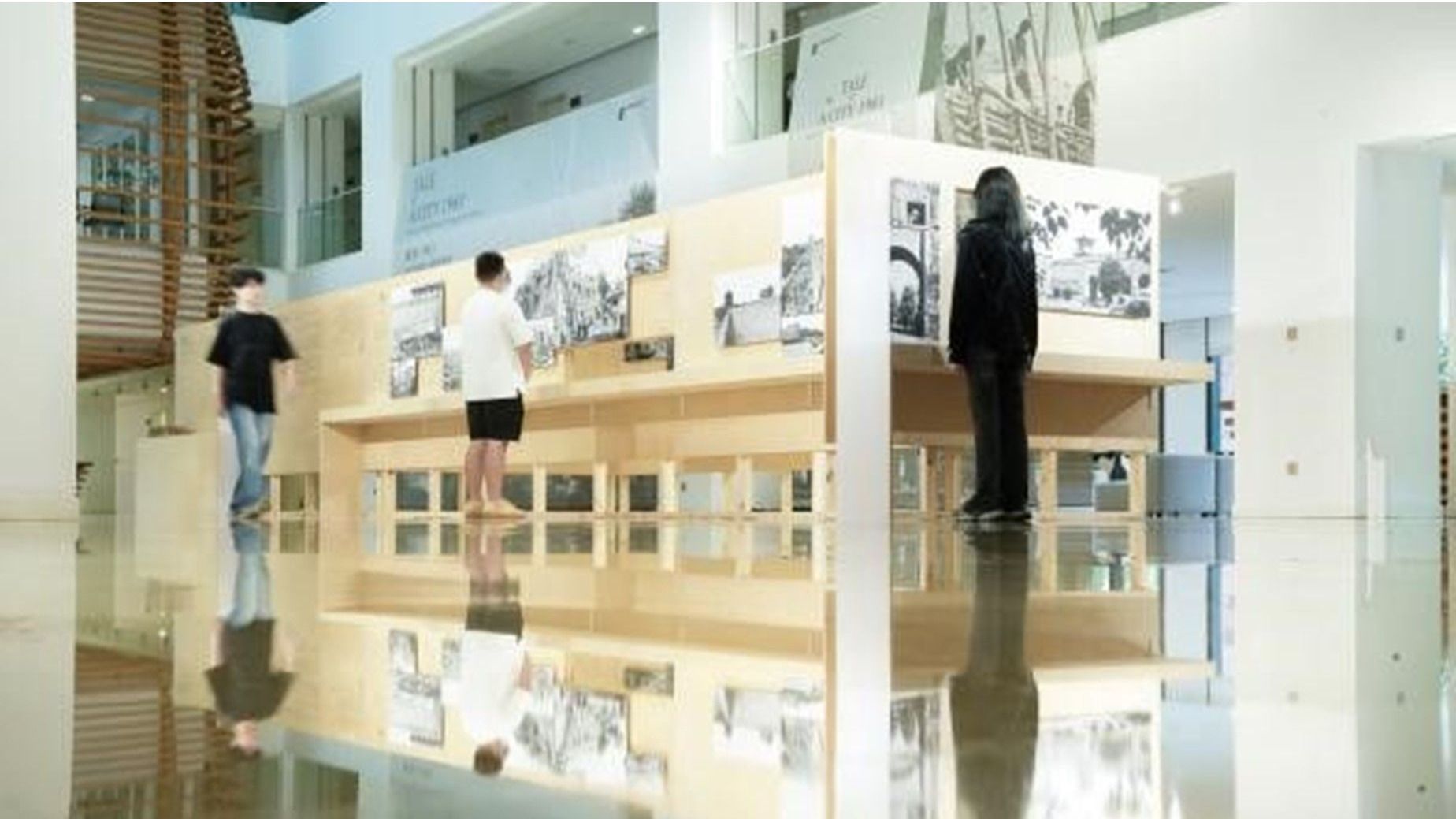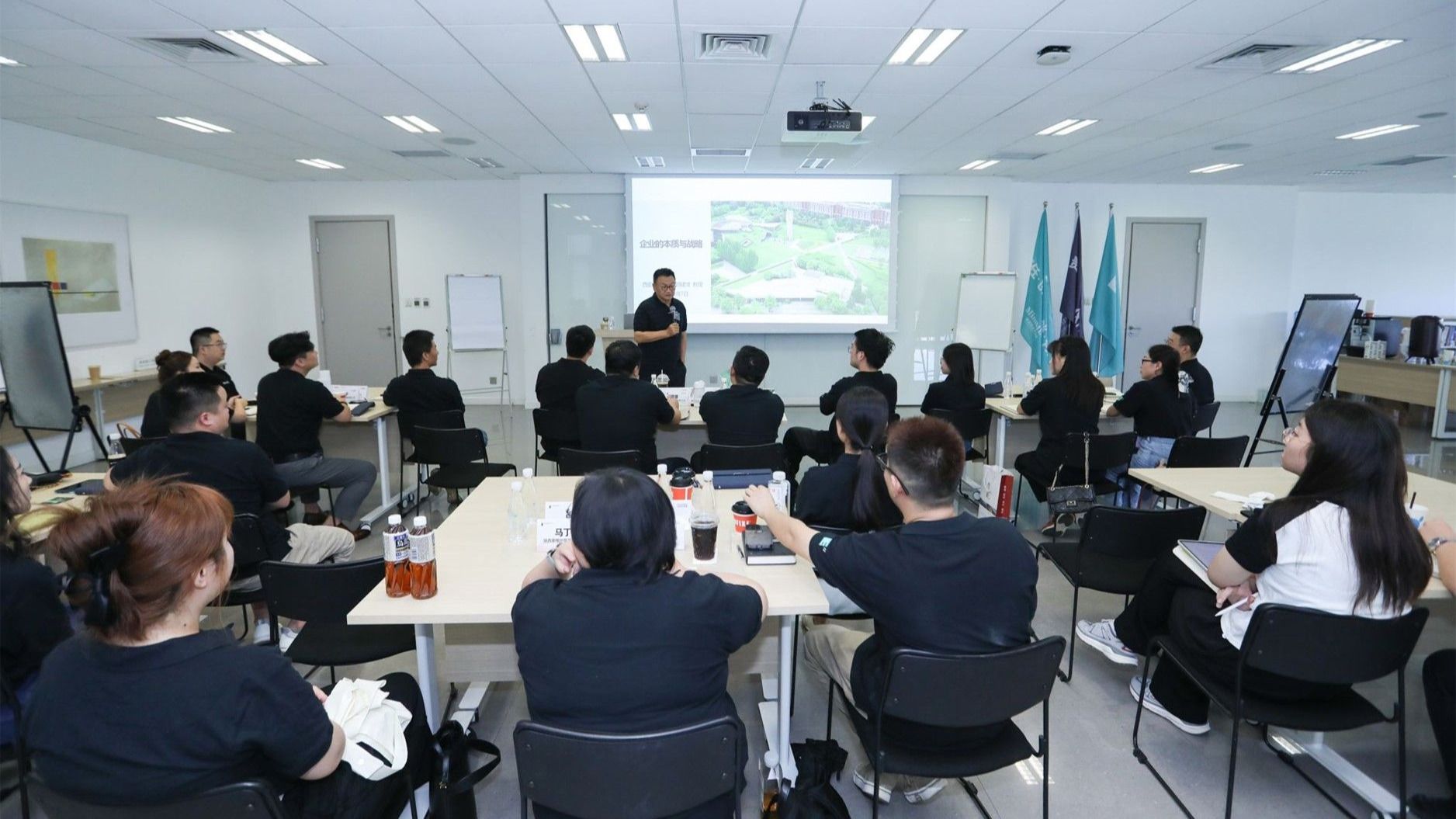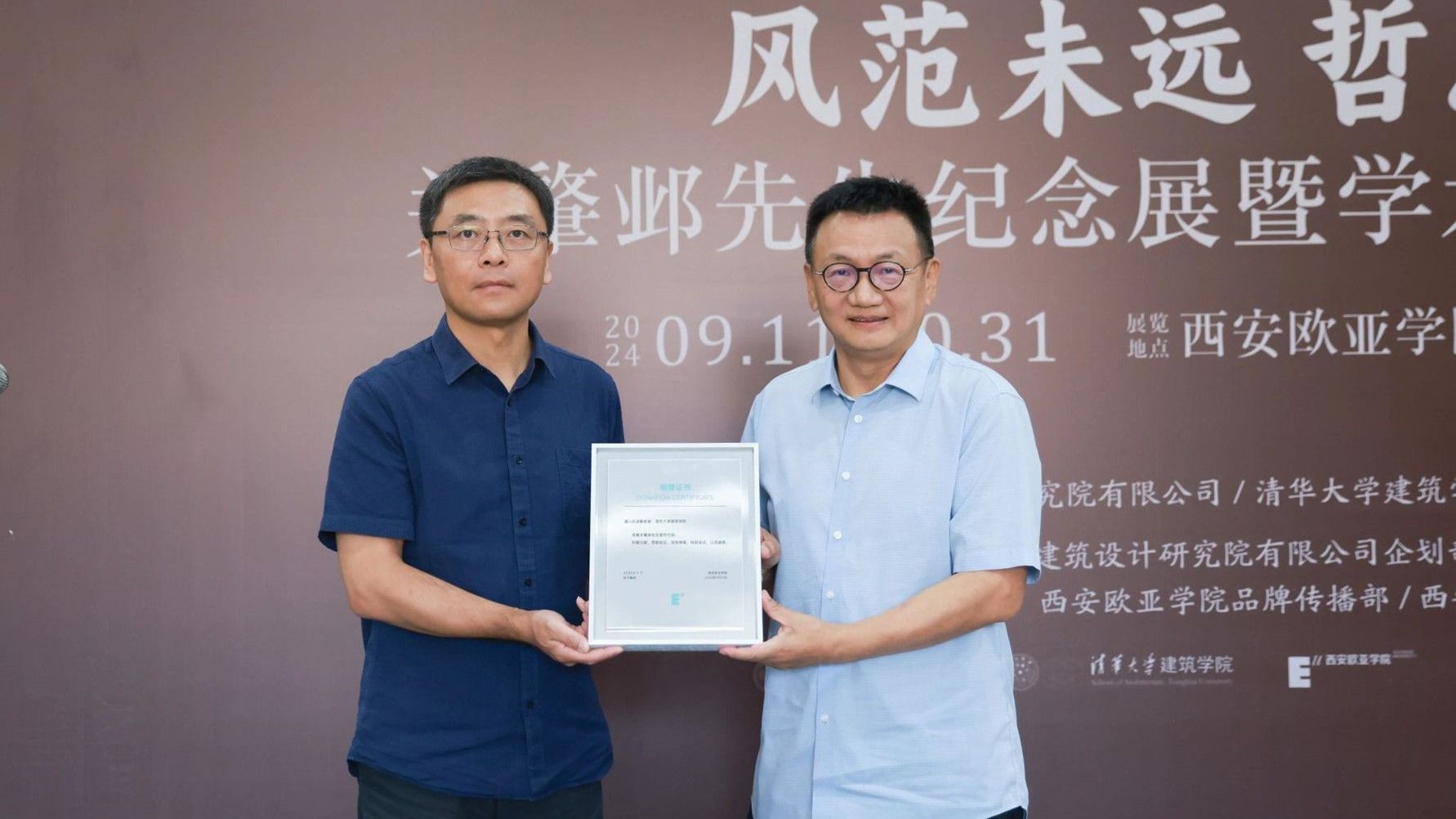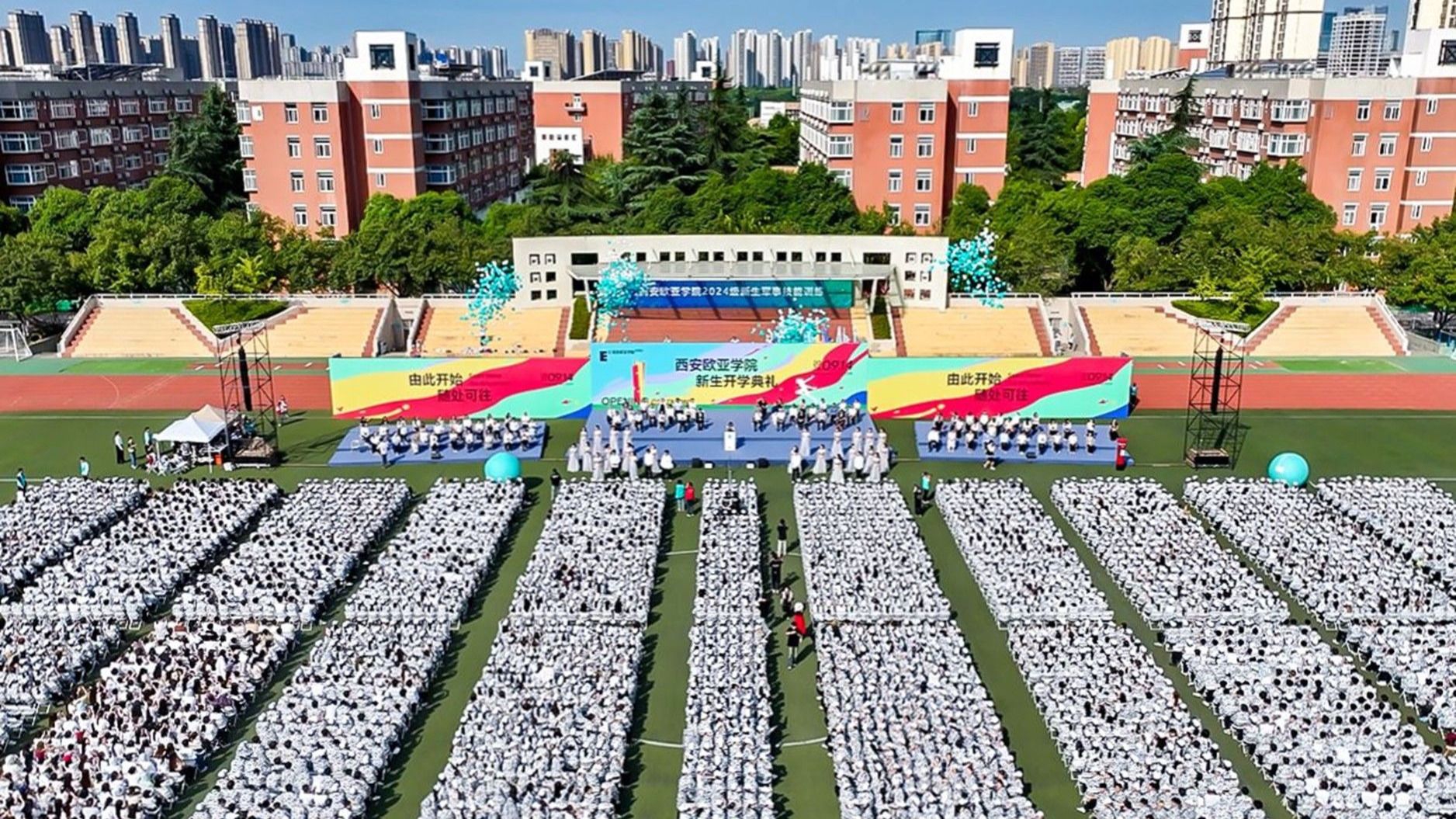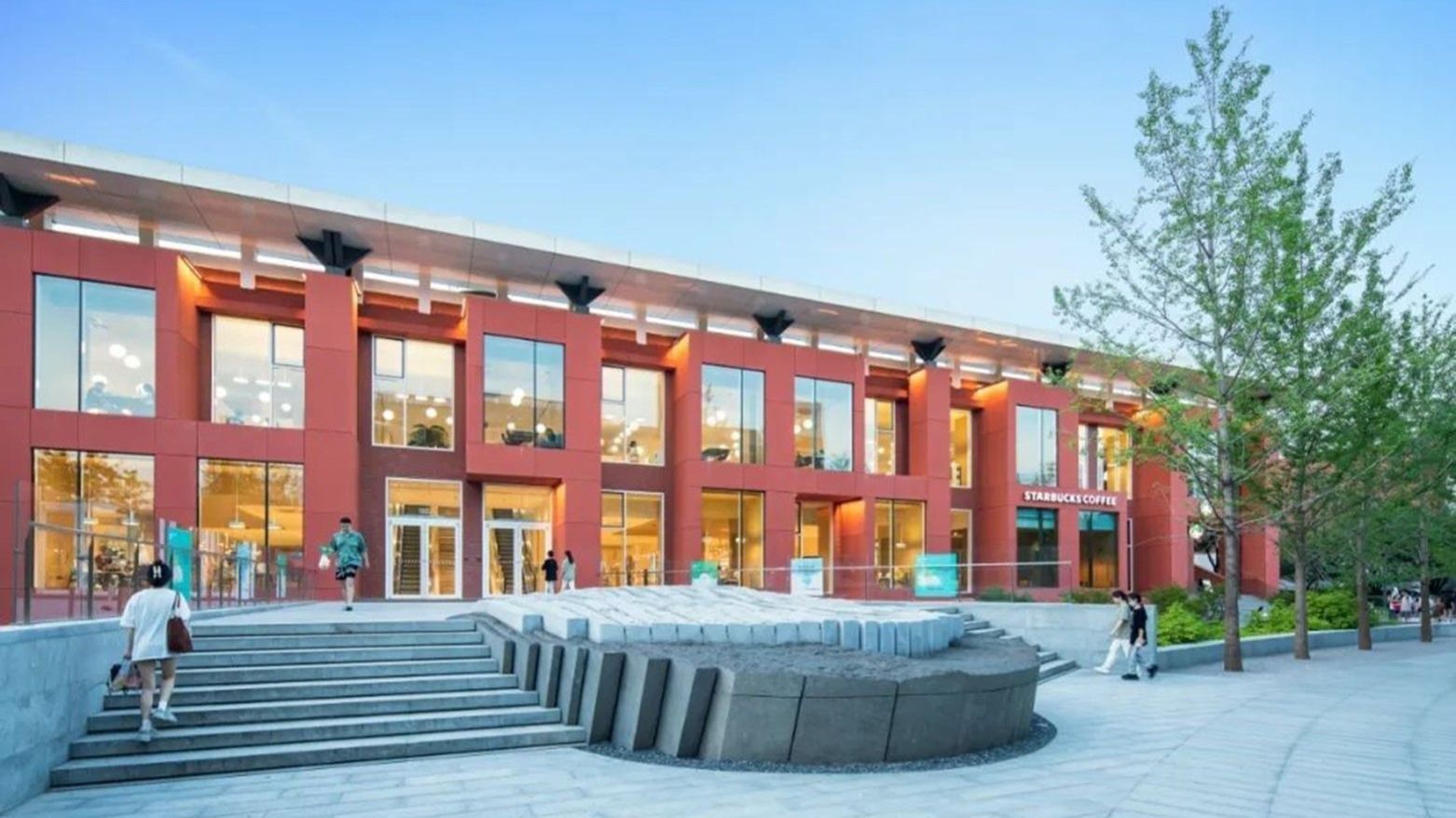In the past week, I have offered to give lectures on entrance education to freshmen in four schools of our university. I arranged my schedule from morning to evening, carefully designed my lectures, and enjoyed the pleasure of delivering lectures as a teacher.
The last lecture was for students majoring in real estate development and management and those majoring in engineering management at the School of Human Settlements and Civil Engineering. In the second half of the class, I found that the atmosphere gradually became oppressive, and the students kept falling into silence. I could obviously feel their entanglement and pain.
Popular Opening Ceremony

(Fig. 1) Opening Ceremony Held on September 15 for Freshmen of Xi'an Eurasia University Enrolled in 2023
At the beginning of the class, I asked them "How would you rate this morning's opening ceremony?" They were silent at first but then some of them began to reply "unforgettable", "very warm", "a good ritual", "very different"...
I went on to ask them "How is it different from similar ceremonies that you attended in high school? Please be more specific." This sparked a lively discussion in the classroom.
One student replied, "The music before the opening ceremony was pleasant and the song by the choir at the end was touching."
"The three speeches by the teacher, classmate, and president were not long, but they were all very interesting and thought-provoking."
"Not many speeches were made at the ceremony, so the ceremony did not last for a long time. It seemed to have ended too soon."
"When the national flag and school flag came into our view, the background music gave us a sense of ceremony. Moreover, there were flags for schools and communities. I was surprised that each community has its own flag."
"The chairs we sat on were comfortable because of the backrests."
"The background of the display board for the ceremony was in green. It looked nice, elegant, and special."

(Fig. 2) Opening Ceremony Held on September 15 for Freshmen of Xi'an Eurasia University Enrolled in 2023
I continued to ask them what they thought of their uniforms and school badges.
"Military training uniforms are comfortable and breathable, with pretty colors and nice styles. We like to wear them at ordinary times. In the past, our military training uniforms were thick and airtight, and we threw them away after military training."
"The school badge is small and chic. The magnet design makes it easy to wear. The badge can also be used as an accessory for clothes that we typically wear at ordinary times."
As the class came alive, some students discovered something new:
"The entrance and exit of the ceremony were not crowded or chaotic."
"In the past, we had to rehearse several times for such a ceremony. This time, we went to the venue without rehearsal, but it proved in good order."
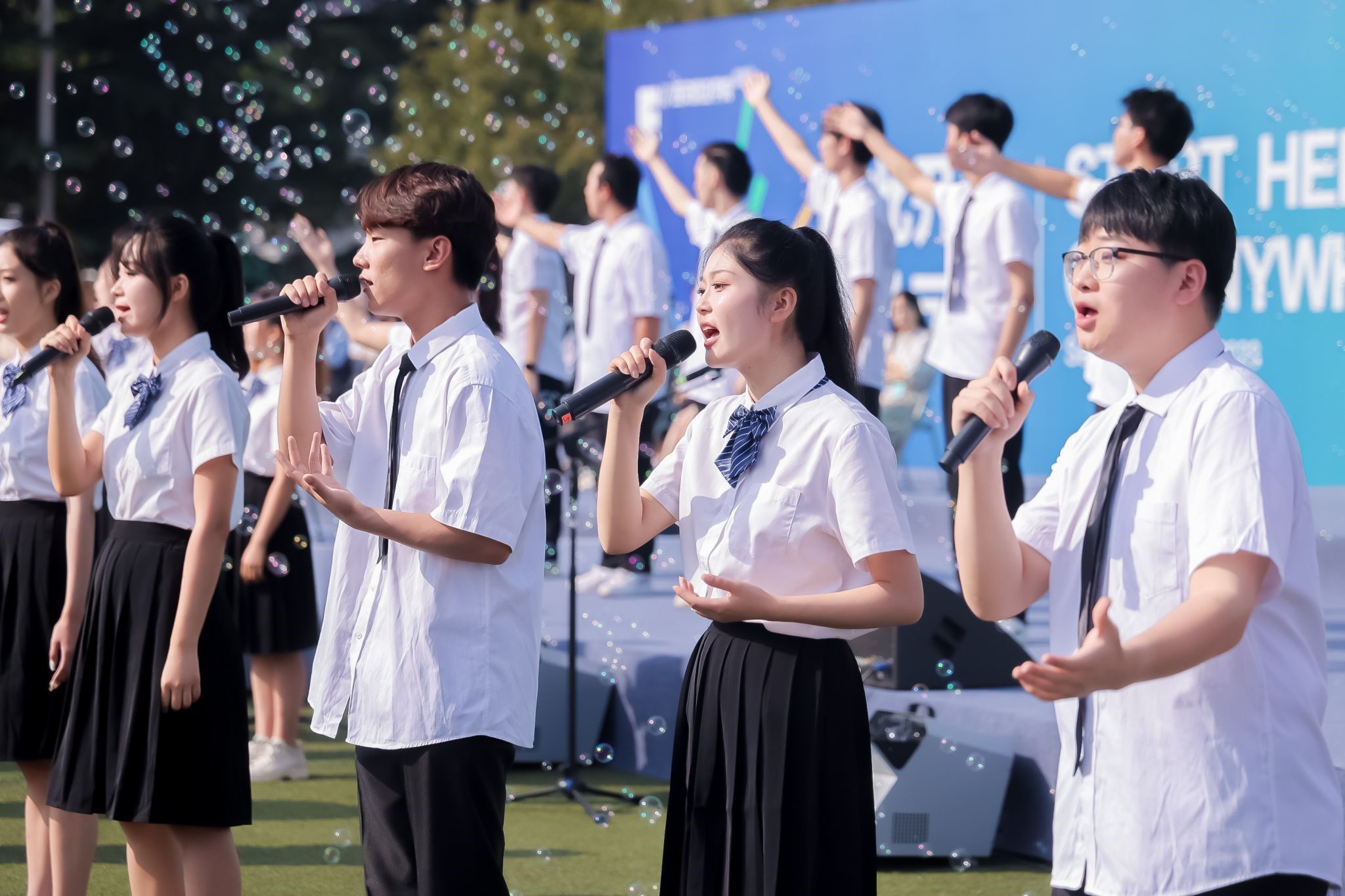
(Fig. 3) Opening Ceremony Held on September 15 for Freshmen of Xi'an Eurasia University Enrolled in 2023
As the students scrambled to find out the diffierences of the opening ceremony, I introduced the story behind it. This opening ceremony was undertaken by student associations. Our school's six major activities are all undertaken by students, and there is also a set of knowledge management system. There is a special project management manual for the specific project of the "opening ceremony". It has detailed standards and regulations for each link and process and will train community students in advance who are responsible for organizing the meeting. Meanwhile, several teachers will provide professional and technical support, for example, in terms of music selection, background plate design, access to audio equipment, funding, etc. The event is organized each year by different students, but the organizers will keep up the good practices in organizing previous opening ceremonies. Of course, they will also put forward some new ideas. This is how our opening ceremony has been innovated and evolved.
Change of Role from Party A to Party B
Next, I showed students a large number of historical pictures to introduce the development history of Xi'an Eurasia University, for example, how the campus has become what it is despite a difficult start. Then, I invited teacher Yin Yingdi, Deputy Dean of the School of Human Settlements and Civil Engineering, to introduce in detail the research plan that she formulated as a leading role for the 2017 renovation demand of Block A in the west district where the School of Human Settlements and Civil Engineering is located, so as to make freshmen understand how their space environment has become what it is.
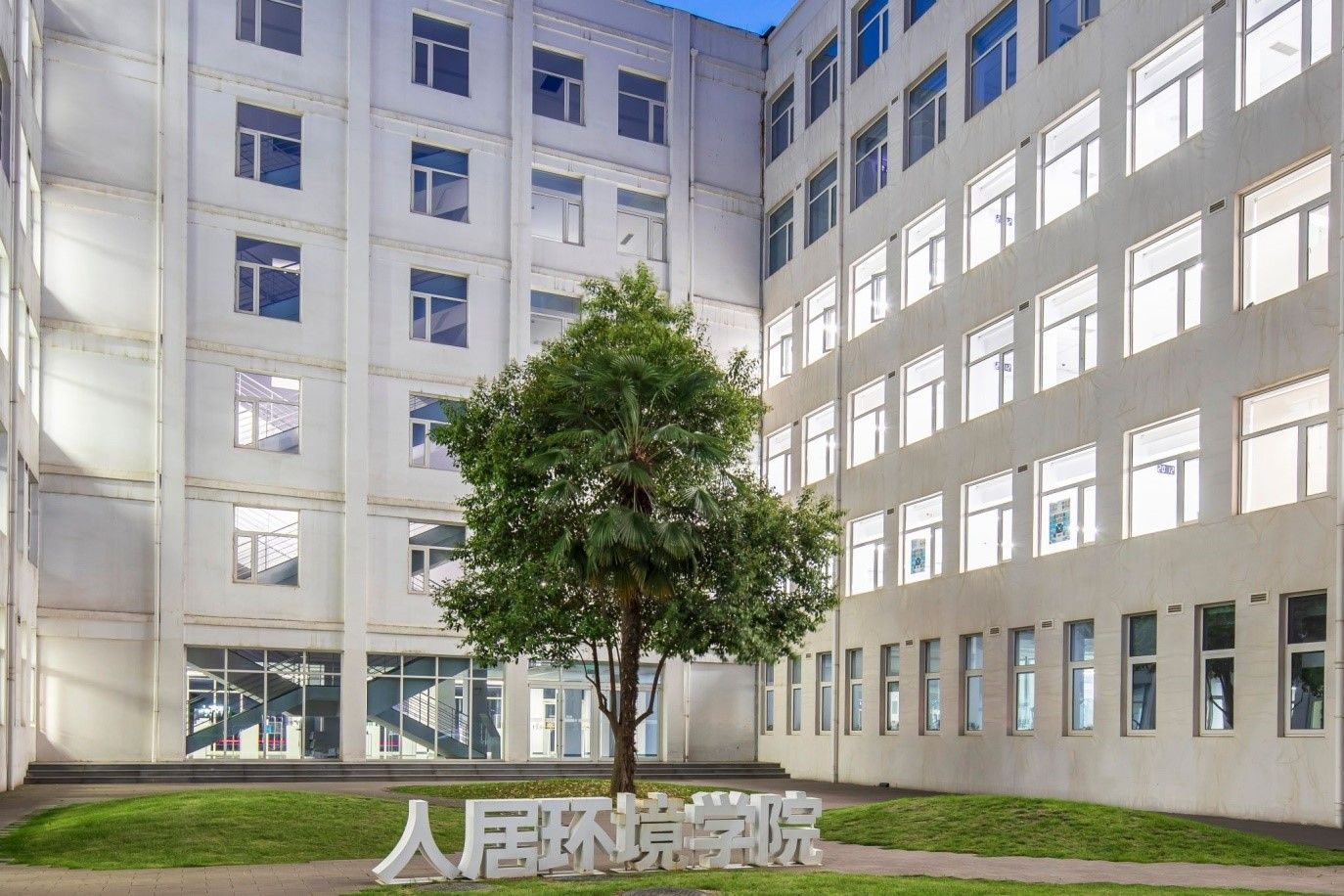

(Fig. 4-5) Teaching Building of School of Human Settlements Civil Engineering, West Block A
This topic was also very popular because this case was relevant to them and they have first-hand experience. Moreover, the spatial environment renewal of the School of Human Settlements and Civil Engineering is a famous case of educational spatial environment renewal in China. The theoretical model behind the case is the "design thinking triangle", namely how the three elements of "demand study", "engineering feasibility" and "financial cost" interact.
One of the goals of this teaching session is to enable students to think more rationally from the standpoint of investors, developers, or Party A, instead of thinking subconciously from the standpoint of consumers, students, or Party A. As participants of the project, I, teacher Yin, infrastructure department director Lei Chunni, and finance department director teacher Li Mei jointly introduced this case. We could not only introduce the case more lively and present different standpoints and views as the project investor, representative of people with relevant needs, project manager, and finance staff. Freshmen were highly engaged in the course, eager to understand the stories and interdisciplinary knowledge behind the educational spaces they use.
Hard-to-Make and Painful Choices
The class atmosphere changed in the third teaching session, during which teacher Lei from the Infrastructure Department and teacher Li from the Finance Department introduced the university's student apartment renovation project this year. The project involved costs, investment and financing, pricing, construction periods, construction of new apartments and renovation of existing apartments for all students of the university in a higher dimension, as well as more complex investment planning for university-wide construction.

(Fig. 6) Dormitory of South 5 Student Apartment Building
Students' expression began to be unnatural when the PowerPoint presentation displayed the renovation effect of the South 5 Apartment Building this year. After all, the actual effect and facilities of this apartment are better than the current accommodation conditions of most students present in the classroom. Following the display, students made a comparison subconsciously and became upset. When the completed new student apartment in the West Campus was being introduced, brand new design concepts, dazzling design renderings, and various facilities of the education complex... these made the students both excited and stressed. Especially when the amount of investment in this project and the estimated accommodation fees were being introduced, the atmosphere became obviously depressed.
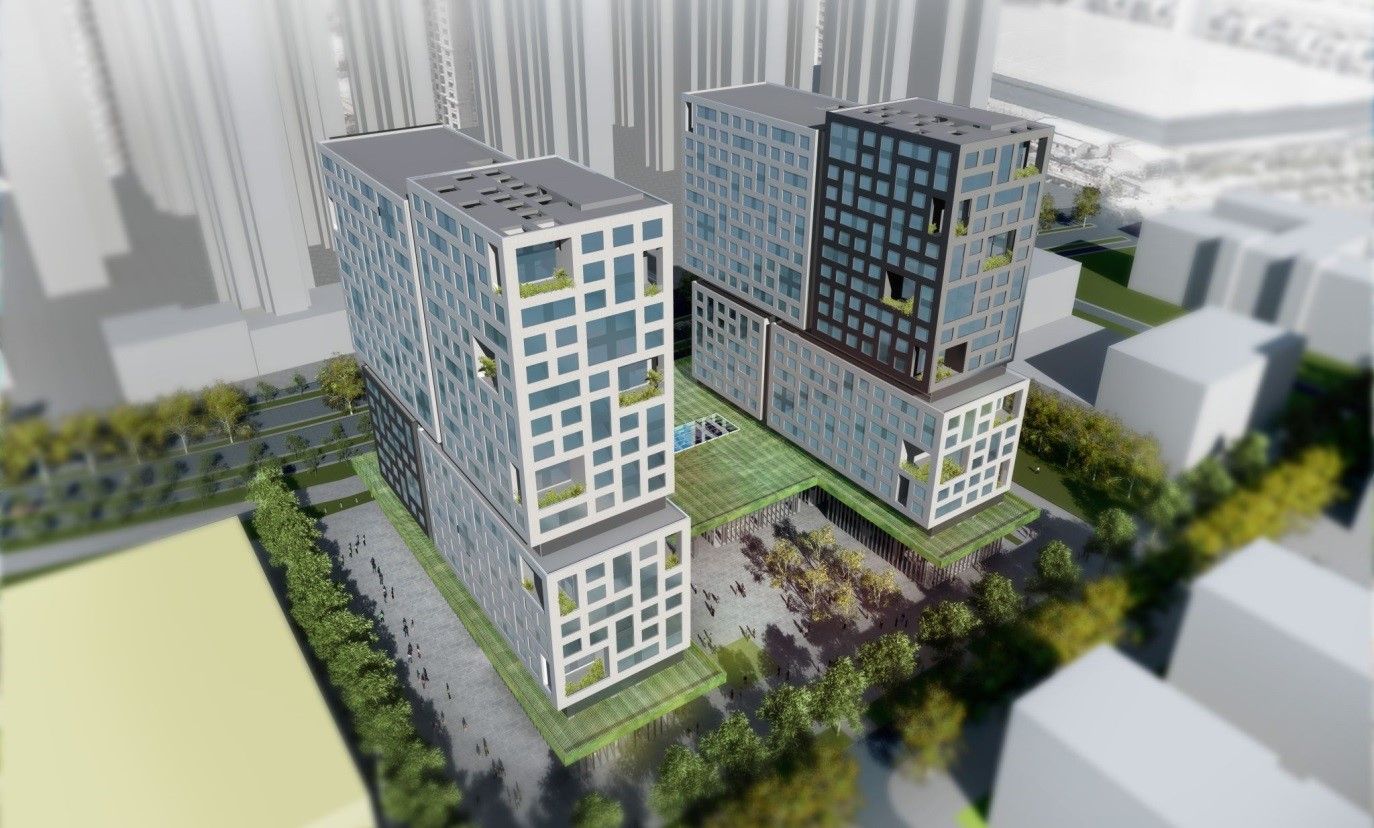

(Fig. 7-8) Effect Diagram of the Student Apartment on West Campus
Realizing this change, I adjusted my teaching content from the "design thinking triangle" that I planned to introduce to the three-element teaching goal of "critical thinking", that is, "unremitting questioning, tolerance of dissent, and courageous responsibility". I started asking students a series of questions to make them make judgments and choices.
"If the accomodation fees for new apartments exceed your expectations, will you choose to live in new apartments?"
"You all said you prefer four-person accommodations. How many rooms do your homes have? Does anyone of you prefer single-person or two-person accommodations?"
"If the university does not provide single-person or two-person accommodations at present and in the future, will you choose to live off campus?"
"If you think the fees are too high and you don't want to increase your parents' financial burdens but you prefer single-person accommodations or share an apartment, will you choose to work part-time on and off campus to pay for tuition or accommodation fees?"
"Commercial bank loans are feasible, and the loan interest rate is low. Due to inflation, it's affordable and cost-effective to borrow a small amount of money now and repay it in the future. Will you borrow loans for this purpose?"
"If you are going to study abroad, will you choose four-person accommodations? At the University of Melbourne, Australia, the accommodation fees for student apartments in a week are equivalent to those of Chinese universities in a year. Do you think such expenses are reasonable? If you study abroad and don't have enough money for better accommodation options, will you work or borrow a loan?"
"If you think that you cannot afford such high apartment fees, but the rest of your class live in such an apartment, will you feel uncomfortable? Do you object to the practice of building such advanced apartments? After all, this could bring a sense of inequalities among students."
Apparently, such a flood of questions inflicted much pressure on the students. Some of them remained silent. After someone expressed their opinions, there were always objections. Some of them began to feel upset or even aggressive. Most fell into thought.
Which Do You Choose, to "Accept Unfairness" or to "Take Responsibility"?
The first stage was about analyzing the innovations of the opening ceremony, which highlighted the "student-centered" brand reputation of Xi'an Eurasia University. It improved the practical ability of students who organized the ceremony through such practice activities. The organizers made some innovations that were affordable and all parties concerned were happy about this outcome. Therefore, students participated in the discussion happily and bore no pressure from making comparisons.
Technically, the renovation of teaching buildings is the most difficult. It is a difficulty and pain point that confronts all universities in China at present. No existing models and theories can provide direct support. The underlying theoretical method is the triangle of design thinking, which needs to be studied and analyzed according to each university's specific conditions. Given the difficulty, the teaching team and I did not introduce it to freshmen in much detail. All we did was to give them an initial perception of how the renovation of teaching buildings was carried out, so as to prepare them for future professional courses.
The third part was about the renovation of school apartments. The challenge was the different answers from students to my questions, leading to a conflict of views. There is a price to pay for the choice of answers to each question: "Take it or not", "Pay or not", "How much to pay" and "If I choose a low-priced apartment, will my classmates look down on me"... Each requires serious thinking and painful choices. Those who feel no alternative choices to make may easily feel unfair and discriminated against. Among the three elements of critical thinking, "assuming responsibility" is usually blurted out by everyone. However, in actual situations, it takes courage to make a choice and commitment between "accepting unfairness" and "assuming responsibility".
Please Give Me Some Advice
Instead of dwelling on these difficult questions, I turned to ask students to give advice on the construction and renovation of our school's apartments in the future.
"Our school has limited financial resources, so it can only renovate its old apartments in batches, instead of all at one time. This way leads to apartments with different conditions. Given this, is it necessary to set differentiated accommodation fees?"
"If differentiated pricing is implemented, there may be public opinion that students are classified hierarchically by school apartments and this will create a sense of unfairness; if not, is it fair for students living in apartments with worse conditions to pay as much as those living in apartments with better conditions?
"Given the government's restrictions on the accommodation fees of student apartments, the school cannot make both ends meet if it opts for major renovation but minor renovation cannot meet students' needs. Under the circumstances, should it opt for major or minor renovation?"
"The student apartments in the new education complex have been built according to international standards, with good accommodation conditions. Despite high accomodation fees, however, they cannot cover all costs and need fees from old apartments to make a balance. Is it a fair practice?"
"Are all of you more interested in improving the accommodation conditions of apartments? How many of you are more sensitive to the accomodation fees of apartments?"

(Fig. 9) Classroom Discussion
Some students still actively discussed these questions while most had lost interest because they realized that temporarily they could not give the school any useful advice on these issues. On the contrary, as these questions were proposed, I seemed to have found the answer to the puzzle that had haunted me for a long time. This made me feel relaxed and happy.
Conclusion
At the conclusion of the entrance education activity, Professor Feng Wei from the School of Human Settlements and Civil Engineering who presided over the class made a concluding speech. He spoke into the microphone and made his speech with only one sentence, "Today's entrance education content is wonderful, and this has provoked my thoughts!" Apparently, his voice was choking. He restrained himself and declared today's class over. I was also choking with excitement. This might be teachers' resonance for a good class.

(Fig. 10) Summary of the Entrance Education Class by Professor Feng Wei
I called him in the evening and he said, "Sorry about today. I lost control of myself because I had never seen such entrance education for freshmen like this before. In front of a group of 18-year-old freshmen, you were so frank and brave to face the reality of society and tell them the pros and cons of a choice. I do not have the courage to do so. I cannot strike a proper balance, so I often encourage freshmen with empty words. As we all know, empty words are useless. Your team used the painful choices in campus construction as your topic and interpreted practical cases with cutting-edge design, management, and engineering theories, giving students a chance to experience the difficulty of making choices, learn how to make choices as real adults, and learn how to face the difficulty of making choices squarely as they dreamed of their future. This class is so really impressive. I learned a lot from it."
I replied, "I noticed that when facing such hard choices, students began to reflect on their ways of thinking and mindsets, and started to change their roles between Party A and Party B." I hope this lesson could inspire students to think in critical thinking, face reality head-on, and solve problems with design thinking. The purpose of education is to enhance students' independence, judgment, and sense of responsibility, promote them to walk the walk, show their personality, give full play to their talents, and be a master of their own destiny."


